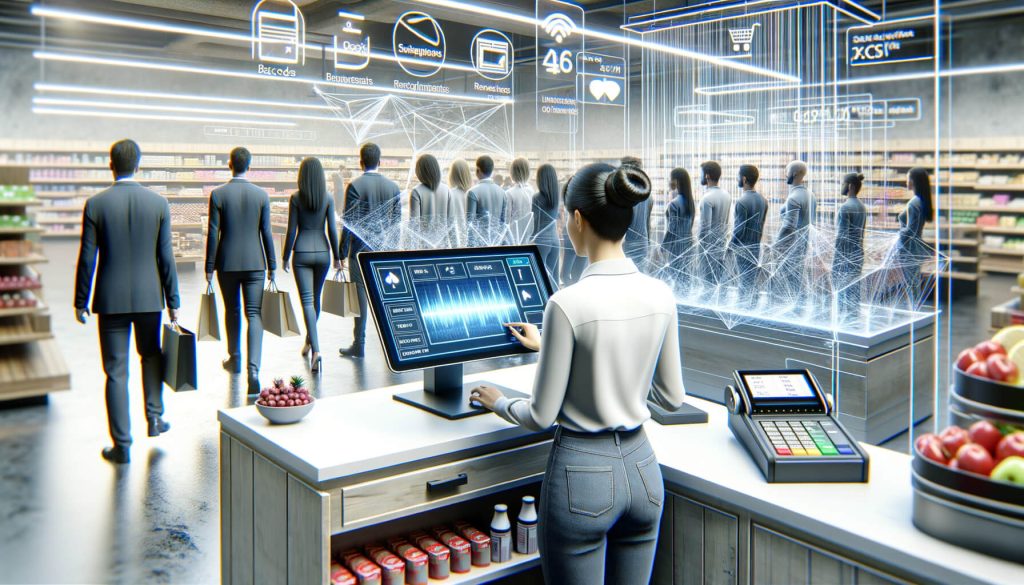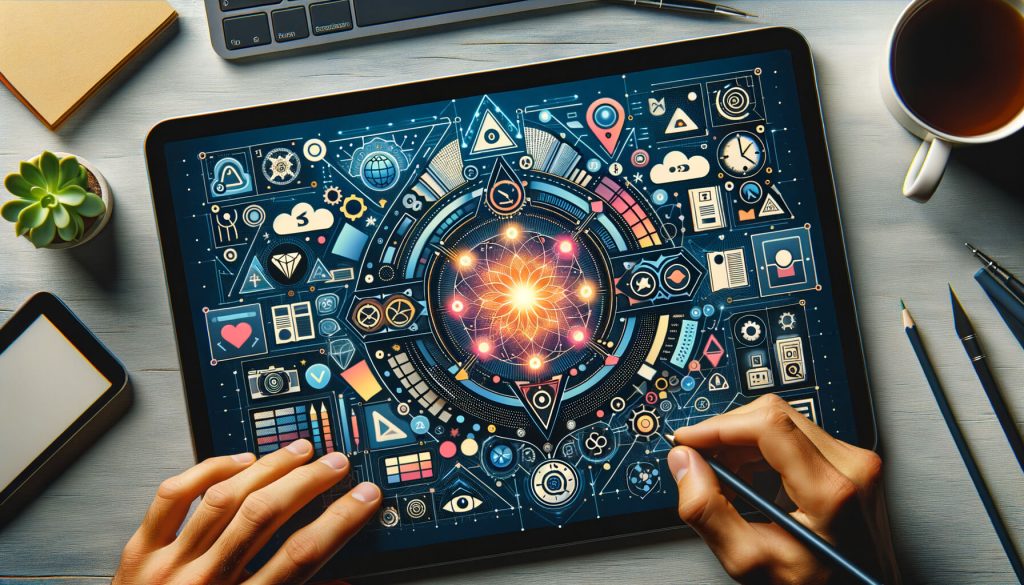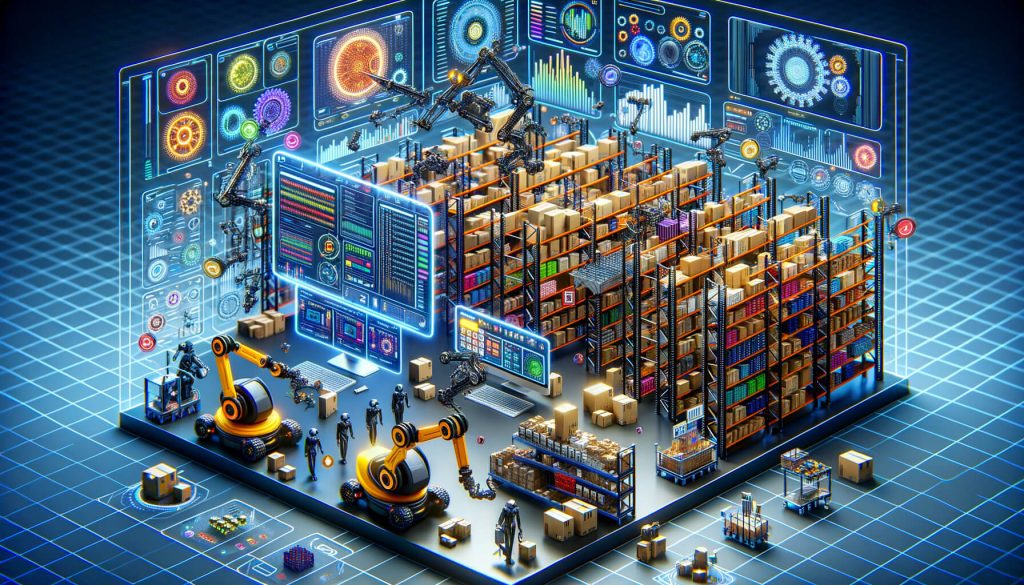In today’s fast-paced business environment, having a modern point of sale (POS) system is crucial for the success of any retail or hospitality business. A POS system is not just a cash register; it is a comprehensive tool that helps businesses streamline their operations, improve customer service, and increase profitability.
With the advancements in technology, modern POS systems offer a wide range of features and functionalities that can greatly benefit businesses of all sizes. In this article, we will explore the top 10 features that every modern POS system should have.
The Importance of Modern POS Systems

Point-of-sale systems have evolved significantly over the years. Once used solely for recording sales, modern POS systems now function as comprehensive business management tools. They integrate inventory tracking, customer management, employee monitoring, and more into a single platform.
A robust POS system is no longer a luxury but a necessity for businesses striving for efficiency and growth. With the right features, a POS system can streamline operations, reduce errors, and provide actionable insights. This guide dives into the must-have features of modern POS systems, helping business owners make informed decisions when selecting or upgrading their POS solutions.
User-Friendly Interface and Intuitive Design

One of the most important features of a modern POS system is a user-friendly interface and intuitive design. A well-designed interface makes it easy for employees to navigate through the system, process transactions, and access important information. It reduces training time and minimizes the chances of errors, ensuring a smooth and efficient checkout process.
A user-friendly interface should have clear and intuitive buttons, easily readable fonts, and logical navigation menus. It should also provide visual cues and prompts to guide users through the different steps of a transaction. For example, when a customer is ready to pay, the system should display a clear prompt to indicate the next action.
Furthermore, a modern POS system should offer customizable layouts and workflows to cater to the specific needs of different businesses. This allows businesses to tailor the system to their unique requirements and optimize their operations.
Seamless Integration with Various Hardware and Software

Another crucial feature of a modern POS system is its ability to seamlessly integrate with various hardware and software. Integration with hardware such as barcode scanners, receipt printers, and cash drawers is essential for efficient and accurate transaction processing. It eliminates the need for manual data entry and reduces the chances of errors.
Moreover, integration with software applications such as accounting software, customer relationship management (CRM) systems, and e-commerce platforms allows businesses to streamline their operations and improve productivity. For example, integration with accounting software enables automatic synchronization of sales data, eliminating the need for manual data entry and reducing the chances of errors.
A modern POS system should also support integration with mobile devices such as smartphones and tablets. This allows businesses to take advantage of the mobility and flexibility offered by these devices, enabling them to serve customers anywhere in the store or even outside the store.
Advanced Inventory Management Capabilities

Efficient inventory management is crucial for the success of any retail business. A modern POS system should offer advanced inventory management capabilities to help businesses track and manage their inventory effectively. This includes features such as real-time inventory tracking, automatic reordering, and stock level alerts.
Real-time inventory tracking allows businesses to have a clear view of their inventory at any given time. It enables them to know which products are in stock, which products are running low, and which products are out of stock. This information is essential for making informed purchasing decisions and avoiding stockouts.
Automatic reordering is another important feature of a modern POS system. It allows businesses to set up reorder points for each product and automatically generate purchase orders when the stock level falls below the reorder point. This ensures that businesses never run out of stock and can fulfill customer orders in a timely manner.
Stock level alerts notify businesses when the stock level of a particular product is running low. This allows businesses to take proactive measures such as placing an order with the supplier or adjusting the pricing strategy to clear the remaining stock.
Robust Reporting and Analytics Features
Data is a valuable asset for any business, and a modern POS system should provide robust reporting and analytics features to help businesses gain insights into their operations and make data-driven decisions. Reporting and analytics features allow businesses to track key performance indicators (KPIs), identify trends, and measure the success of their strategies.
A modern POS system should offer a wide range of pre-built reports that cover various aspects of the business, such as sales, inventory, employee performance, and customer behavior. These reports should be customizable, allowing businesses to filter and sort the data based on their specific requirements.
In addition to pre-built reports, a modern POS system should also provide ad-hoc reporting capabilities. This allows businesses to create custom reports and analyze the data in a way that is most relevant to their business goals. For example, a retailer may want to analyze the sales performance of a specific product category across different locations.
Furthermore, a modern POS system should offer real-time reporting capabilities. This means that businesses can access up-to-date information on their operations at any time, from anywhere. Real-time reporting enables businesses to monitor their performance closely and take immediate action if necessary.
Customizable and Flexible Pricing Options
Every business has its own pricing strategy, and a modern POS system should offer customizable and flexible pricing options to accommodate different business models. This includes features such as tiered pricing, discounts, promotions, and loyalty programs.
Tiered pricing allows businesses to set different prices for different customer segments or based on quantity purchased. For example, a retailer may offer a lower price for wholesale customers or provide volume discounts for large orders. A modern POS system should support tiered pricing and automatically apply the appropriate price based on the customer segment or quantity purchased.
Discounts and promotions are effective marketing tools that can help businesses attract new customers and increase sales. A modern POS system should allow businesses to easily create and manage discounts and promotions. This includes features such as percentage discounts, dollar amount discounts, buy-one-get-one (BOGO) offers, and free gift with purchase.
Loyalty programs are another important aspect of a modern POS system. A loyalty program rewards customers for their repeat business and encourages them to keep coming back. A modern POS system should support loyalty programs and provide features such as points accumulation, rewards redemption, and customer data tracking.
Efficient Employee Management Tools
Efficient employee management is crucial for the smooth operation of any business. A modern POS system should provide tools to help businesses manage their employees effectively. This includes features such as employee scheduling, time tracking, and performance monitoring.
Employee scheduling allows businesses to create and manage work schedules for their employees. A modern POS system should provide a user-friendly interface for creating schedules, taking into account factors such as employee availability, labor laws, and business needs. It should also allow employees to view their schedules and request time off or shift swaps.
Time tracking is another important feature of a modern POS system. It allows businesses to accurately track the hours worked by their employees, ensuring compliance with labor laws and accurate payroll processing. A modern POS system should provide a variety of time tracking options, such as clock-in/clock-out, biometric authentication, and mobile app-based time tracking.
Performance monitoring is essential for identifying top-performing employees, recognizing their achievements, and providing constructive feedback for improvement. A modern POS system should provide tools to track and measure employee performance, such as sales targets, customer satisfaction ratings, and productivity metrics. This allows businesses to identify areas for improvement and provide targeted training and coaching to their employees.
Secure Payment Processing and Data Protection
Security is a top concern for businesses and customers alike, especially when it comes to payment processing and data protection. A modern POS system should provide robust security features to ensure the safety of customer data and protect against fraud.
Secure payment processing is essential for businesses that accept credit and debit card payments. A modern POS system should comply with the Payment Card Industry Data Security Standard (PCI DSS) to ensure the secure handling of cardholder data. This includes features such as encryption, tokenization, and secure transmission of data.
Data protection is another important aspect of a modern POS system. It should provide features such as data backup and recovery, user access controls, and audit trails. Data backup and recovery ensure that businesses can recover their data in the event of a system failure or data loss. User access controls allow businesses to restrict access to sensitive data and ensure that only authorized personnel can view or modify it. Audit trails provide a record of all system activities, allowing businesses to track any unauthorized access or suspicious activities.
Omni-Channel Capabilities for Multi-Location Businesses
For businesses with multiple locations, having omni-channel capabilities is essential for providing a seamless and consistent customer experience across all channels. A modern POS system should support omni-channel retailing, allowing businesses to integrate their online and offline sales channels.
Omni-channel retailing enables businesses to offer features such as buy online, pick up in-store (BOPIS), ship from store, and return in-store. This allows customers to choose the most convenient way to shop and receive their purchases. For example, a customer can browse products online, place an order, and pick it up from the nearest store.
A modern POS system should provide real-time inventory visibility across all locations. This ensures that customers can see the availability of products in real-time and make informed purchasing decisions. It also allows businesses to optimize their inventory allocation and fulfill customer orders from the most suitable location.
Furthermore, a modern POS system should provide seamless integration with e-commerce platforms. This allows businesses to synchronize their online and offline inventory, pricing, and promotions. It also enables businesses to provide a consistent shopping experience across all channels, such as personalized recommendations and targeted promotions.
Customer Relationship Management (CRM) Integration
Building strong customer relationships is crucial for the success of any business. A modern POS system should provide integration with customer relationship management (CRM) software to help businesses manage their customer data effectively and provide personalized experiences.
CRM integration allows businesses to capture and store customer information, such as contact details, purchase history, and preferences. This information can be used to personalize the customer experience, such as sending targeted promotions or recommending relevant products. It also enables businesses to track customer interactions and provide better customer service.
A modern POS system should provide features such as customer profiles, loyalty program integration, and customer segmentation. Customer profiles allow businesses to store and access customer information in a centralized database. Loyalty program integration enables businesses to track customer loyalty and reward their repeat business. Customer segmentation allows businesses to group customers based on common characteristics or behaviors, enabling targeted marketing campaigns.
Scalability and Future-Proofing
As businesses grow and evolve, their needs change. A modern POS system should be scalable and future-proof, allowing businesses to adapt to changing requirements and expand their operations seamlessly.
Scalability means that a POS system can handle increasing transaction volumes, support additional users, and accommodate new features and functionalities. A modern POS system should be able to scale up or down based on the needs of the business, without compromising performance or stability.
Future-proofing means that a POS system can adapt to new technologies and industry trends. It should be built on a flexible and modular architecture that allows for easy integration with new hardware and software. It should also provide regular updates and enhancements to keep up with the latest industry standards and customer expectations.
FAQs
Q1: What is the most essential feature of a POS system?
It depends on your business, but multi-payment processing and inventory management are universally critical.
Q2: Are cloud-based POS systems better than traditional ones?
Cloud-based systems offer flexibility, scalability, and remote access, making them a better choice for most businesses.
Q3: Can POS systems be customized for specific industries?
Yes, modern POS systems offer customizable features tailored to industries like retail, restaurants, and hospitality.
Q4: How do POS systems improve security?
They use encryption, PCI compliance, and fraud detection tools to protect customer data and transactions.
Q5: Are POS systems expensive?
Costs vary depending on features, but many providers offer scalable options for businesses of all sizes.
Conclusion
In conclusion, a modern POS system is a powerful tool that can greatly benefit businesses of all sizes. It offers a wide range of features and functionalities that help businesses streamline their operations, improve customer service, and increase profitability.
From a user-friendly interface and seamless integration with various hardware and software to advanced inventory management capabilities and robust reporting and analytics features, a modern POS system should have all the essential features to meet the needs of today’s businesses. By considering factors such as scalability, future-proofing, and security, businesses can choose the right POS system that aligns with their unique requirements and helps them achieve their goals.

